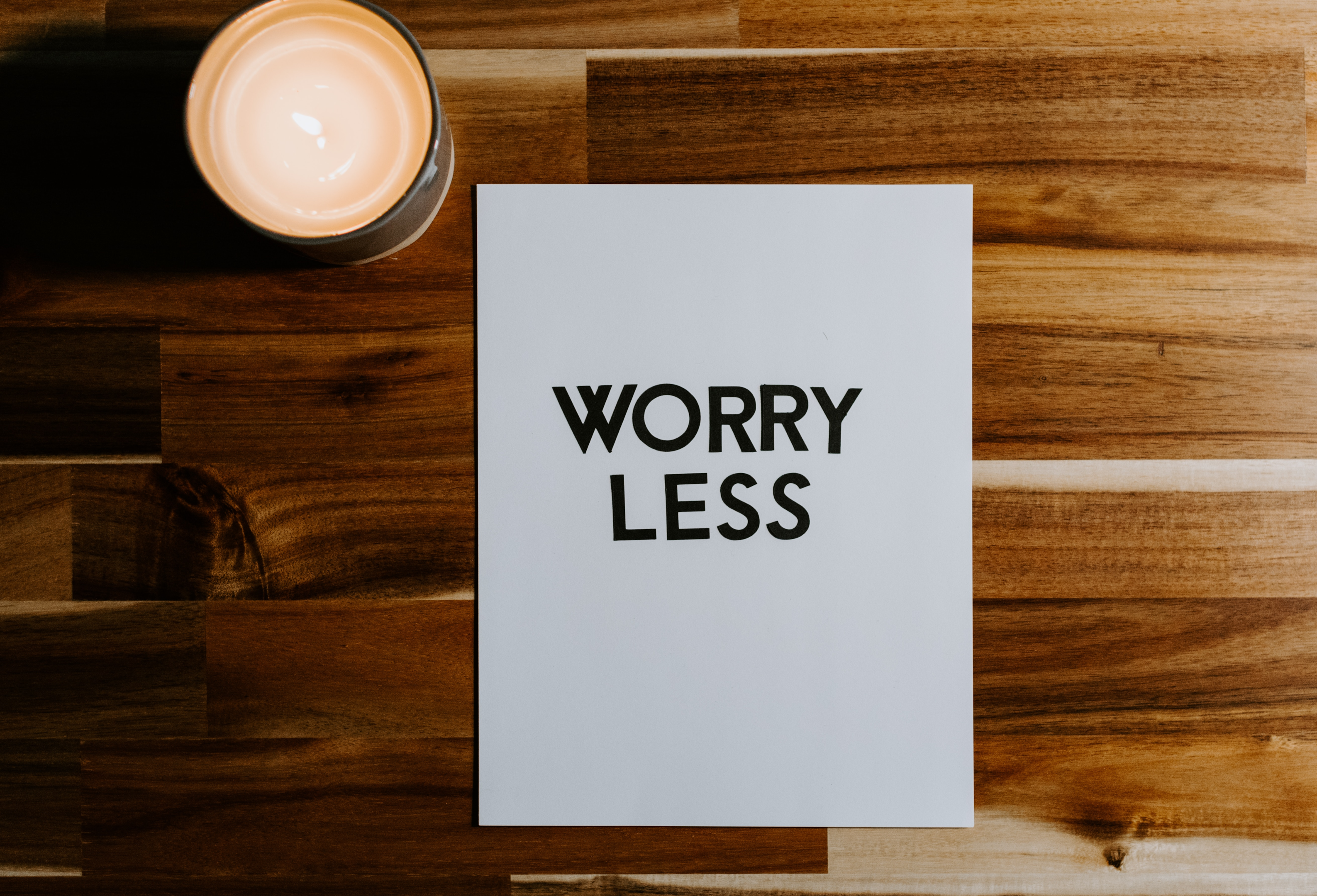We live in an increasingly hectic and demanding world. So it’s no surprise that workplace anxiety seems to be on the rise. The combination of long hours, tight deadlines, competitive work environments and technological distractions can create a high-stress environment. This takes its toll on our physical and emotional wellbeing. In this article, we’ll look at how workplace anxiety impacts employees today and what can be done to help.
What is workplace anxiety?
Workplace anxiety refers to stress caused by work that leads to anxiety or the impact of an anxiety disorder at work [1]. It can involve a wide range of symptoms, such as feeling stressed, nervous, uneasy, or tense about work, feeling physically ill when thinking about work, or making career decisions based on anxiety [2][3][4].
Workplace anxiety can have negative effects on both employees and organisations, and it must be addressed to prevent poor outcomes [1]. It is thought to occur as a result of generalised worries, fears, workplace harassment, or illness anxiety regarding work circumstances, dealing with co-workers and superiors, and thoughts of inadequacy or judgment[5].
The prevalence of anxiety disorders in the workplace
Recent studies suggest that feelings of anxiety in the workplace are becoming more common. A recent report from the Health and Safety Executive (HSE) showed that in 2020-2021, over 800,000 people experienced work-related stress, anxiety or depression[6]. The figures are proportionally higher when we look at younger generations where millennials report feeling anxious in their job.
What is more worrying is that many people feel uncomfortable talking about their anxiety. It’s common knowledge these days that many employees have experienced workplace anxiety but didn’t speak up about it. They felt it was easier to keep their worries to themselves than risk being judged negatively for having mental health issues.
It’s a complex issue (as we all know), considerations include whether there is a pre-existing physical or mental disability and if there is do they already have coping strategies, can they be in the present moment? What are their anxiety symptoms, such as physical symptoms, and how do we help reduce anxiety, more specifically work related anxiety via mediums such as online education and an employee assistance program, but also things not to do like have a toxic workplace culture.
Is workplace anxiety getting worse, or do we think it is?
One of the most common questions surrounding workplace anxiety is whether it’s getting worse or if it just seems that way. Accurate historic data isn’t readily available, not least because the issue wasn’t surveyed as much, but also because of the reluctance to speak about it. So unfortunately, there’s no clear answer to the question and opinions vary drastically from one individual to another.
On the one hand, some people believe that workplace anxiety has increased in recent years due to changes in technology, competition, and the general pace of life. For example, it can be argued that technology has made communication more accessible but more demanding – leading to a higher level of anxiety when trying to stay on top of emails, meetings, and projects. In addition, the growing prevalence of digital media has allowed for increased comparisons between individuals, which can add to the pressure many people feel in the workplace.
Conversely, it can be argued that workplace anxiety is no worse than before, and it just seems more intense due to our increased awareness of the issue. Of course, anxiety has always been present in workplaces – but nowadays, there is a greater emphasis on understanding mental health issues and providing support for those who experience anxiety at work. This increased awareness has likely led to a perceived increase in workplace anxiety even though it has always been present to some degree.
The causes of an anxiety disorder in the workplace
There are many causes of anxiety in the workplace but here are just a few of the more common factors that easily recognised by most of us:
- Job insecurity
- Fear of losing your job or not being able to get a better one
- Workload
- Public speaking
- Feeling overwhelmed by the amount of work you have to do
- Relationships with colleagues
- Difficulty getting along with coworkers, feeling disrespected or judged by them, or not fitting in with the team dynamic
- Fear of failure
- Fear that you won’t be able to meet expectations or make mistakes.
- Lack of control
- Feeling like your job is out of your control, you don’t have the freedom to do things your way.

The impact of workplace anxiety
For many people, workplace anxiety has a significant impact on their lives. Stress and worry can lead to physical health problems such as headaches, fatigue and digestive issues. It can also affect our mental well-being, leading to depression, trouble sleeping or even burnout.
Workplace anxiety can affect job performance too. Those suffering from anxiety may find it hard to focus on tasks or complete them promptly. This can lead to decreased productivity and increased mistakes, ultimately impacting their career prospects.
How do evolving work practices affect our anxiety levels?
The combination of working from home, plentiful social media connections, news feeds and economic uncertainty has led to higher anxiety levels for many. Working from home can lead to feelings of isolation and loneliness, as well as difficulty focusing on tasks when feeling overwhelmed.
Social media can be a double-edged sword – it can help us stay connected but can also lead to feelings of fear and anxiety as we compare our lives to those of others.
In addition constant news updates, often delivered to our personal devices in a barrage of alerts, can expose us to depressing stories that can become overwhelming. For example, the current stream of news includes rising prices, strikes, shortages, and war in Europe offers plenty to worry about.
What can be done to help?
Not everything can be solved with the wave of a magic wand but we can take plenty of simple steps to reduce workplace anxiety and help become more productive:
- By fostering an open culture of support employers can create an atmosphere where employees feel supported and know their ideas are valued.
- Everyone should be encouraged to take regular breaks throughout the day, even if it’s just for a few minutes, to help alleviate stress.
- Educate employers with proactive education programs like we offer here at Gallantium.
- Employers should encourage employees to develop a mindful approach to their work, helping them to focus on the task and enjoying the process.
- Stress-reduction techniques should be encouraged so that employees free to practice meditation exercises, deep breathing, or yoga during break times.
- Employers should consider flexible work arrangements such as remote working or part-time hours to help employees manage their workloads more effectively. Typically, working from home allows us to power-concentrate whereas the workplace allows us to power-collaborate.
The Anxiety and Depression Association: Is it available?
Whilst there is no specific organisation called the Anxiety and Depression Association in the UK, there are several mental health charities and organisations that provide support and resources for people with anxiety and depression. Anxiety UK is a national charity that offers a range of therapy options for people with anxiety[7]. Mental Health UK provides information on anxiety and depression, and estimates that over 8 million people in the UK are living with an anxiety disorder[8]. They also provide information on depression and recommend speaking to a GP if you think you are experiencing it[9]. Mind, another UK mental health charity, provides statistics on the prevalence of mental health problems in England, including anxiety and depression[10].

Answering Common Questions
Here are a few questions that employees frequently ask:
Why is my anxiety worse at work?
Various factors, including job insecurity, workloads, relationships with colleagues, fear of failure and lack of control, can cause workplace anxiety. These can all contribute to feelings of stress and make it difficult to focus on work tasks.
Should I quit my job due to anxiety?
It’s important to remember that quitting your job is a drastic measure and should not be taken lightly. Before making any decisions, exploring other options, such as seeking support from your employer or taking steps to manage your anxiety, is best. If you decide to quit, make sure you have another source of income lined up. Take into account also if you are already an anxious person, what other mechanisms help you in other areas of your life?
Why does work give me so much anxiety?
Various factors, including job insecurity, workloads, relationships with colleagues, fear of failure and lack of control, can cause workplace anxiety. Therefore, it is essential to identify the source of your anxiety and take steps to manage it. Seeking support from your employer or a qualified mental health professional can also help.
When should I stop working with anxiety?
Taking a break is essential if your anxiety affects your ability to concentrate. See if you can take some time away from work to focus on relaxation techniques, practice mindfulness or engage in activities that help you decompress. However, if the issue persists, it may be worth speaking to a qualified mental health professional for further assistance.
Final thoughts
Whether or not workplace anxiety has been a constant that is only just being fully addressed, it’s clear that the pattern of work is changing. Along with this understanding comes a drive for more open working cultures, better internal communication and more supportive management. This presents an opportunity for everyone.
Employers need to be aware of the effects of workplace anxiety and to take steps to create a supportive and productive environment for their staff. In their turn, employees should feel empowered to help change their work culture too. With everyone onboard and taking the steps we’ve outlined here, workplace anxiety can be managed and contained for a healthier, more productive organisation.
1. An Overview of Work Anxiety – Verywell Mind
2. Workplace Anxiety: Signs, Causes, Tips to Cope – Healthline
3. Workplace Anxiety: Causes, Symptoms, and Treatment – WebMD
4. How to Deal With Anxiety at Work – Verywell Mind
5. What Is Workplace Anxiety And How Can You Manage It?
6. Work-related stress and mental health: An emerging health and safety crisis – DWF
7. National charity helping people with Anxiety – Anxiety UK
8. What is anxiety? – Mental Health UK







